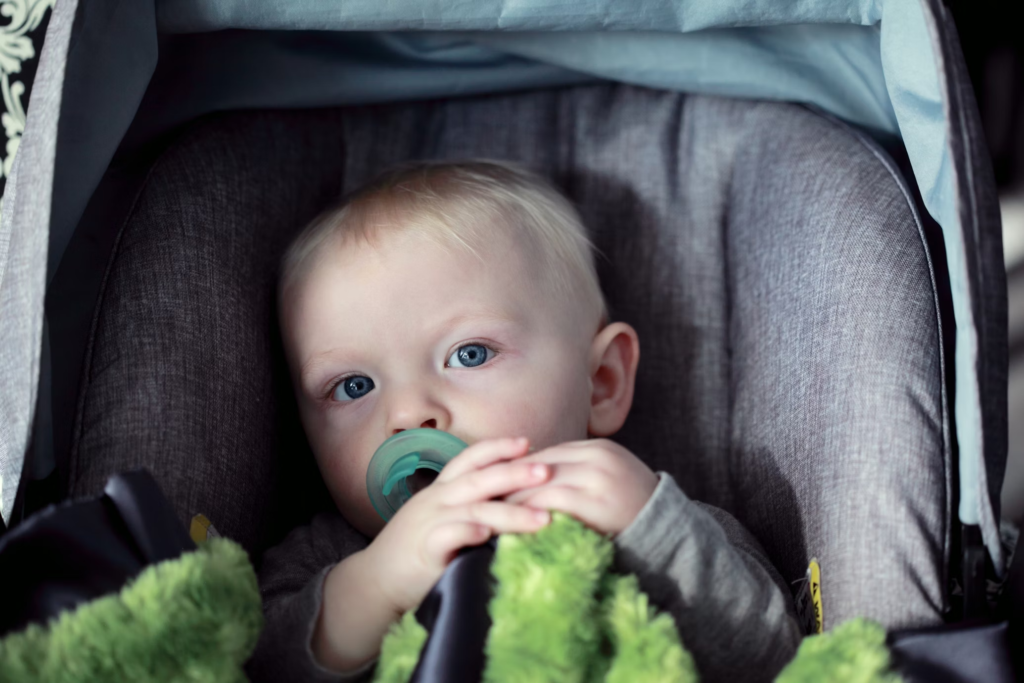The San Diego County Sheriff’s Office is now actively investigating the circumstances that led to Diana being forgotten in the car, and they are working to determine who was responsible. As of now, no charges have been filed, and the authorities are continuing their efforts to understand the full scope of this tragic event.
The dangers of leaving children unattended in hot cars are well-documented. Studies have shown that the temperature inside a parked car can soar to dangerous levels in a matter of minutes, even on relatively mild days. On a 70°F day, the temperature inside a car can reach 104°F within just 30 minutes and 115°F in an hour. At these temperatures, the human body’s organs begin to shut down, making such environments lethal, especially for vulnerable children.
Diana was welcomed into the loving home of Romer and Jayson De Los Santos on April 11, after the couple traveled to Arizona to meet her in the hospital. Heartwarming photos captured the moment the family of four, including their two-year-old adopted son, embraced their newest addition.
Romer, a senior consultant at Jama Software, and Jayson, a stay-at-home dad, had been actively seeking to adopt a second child, sharing their adoption profile on social media in November. They expressed their desire to provide a loving home filled with cherished memories, such as beach outings, biking to the park, and raising foster kittens.

Neighbors described the De Los Santos family as kind and attentive parents, often seen playing outside with their children. One neighbor said, “They seem like a nice family who wanted to give a couple of kids a good life. It’s just a shame it didn’t turn out that way.” The community’s response suggests that the hot car death was not seen as an intentional act, but rather a tragic and unthinkable accident.
The San Diego County Medical Examiner’s Office will determine the cause and manner of Diana’s death. Annually, around 37 children die from being left in hot cars across the U.S., and since 1998, California has witnessed at least 56 such fatalities, according to statistics from San Jose State University’s No Heat Stroke project.
Parents are urged never to leave their children alone in vehicles, even for short periods. Temperatures can rise dangerously fast, posing severe risks to children who cannot regulate their body temperatures as efficiently as adults. California law imposes a $100 fine for leaving a child under six in a car under hazardous conditions, with potential charges ranging from neglect to manslaughter depending on the outcome.
Experts explain that it’s possible for any parent to forget a child in a car, especially when distracted or following routine habits. The increase in such cases since the 1990s is partly attributed to the recommendation of placing child car seats in the back, out of sight to protect them from airbags.

To avoid such tragedies, No Heat Stroke suggests placing a soft toy in the front seat as a reminder of the child in the back or placing essential items next to the child’s seat. They also recommend keeping vehicles locked at all times and teaching children never to play in cars.
The loss of Diana Sofia Aleman Roman serves as a stark reminder of the dangers associated with leaving children unattended in vehicles and the importance of vigilant parenting practices. Hot-car tragedies can happen to anyone due to human memory lapses, and it is crucial to implement safeguards and preventive measures to protect our most vulnerable loved ones.
The heartbreaking fate of baby Diana is a tragedy that should never have occurred. While the investigation continues, it is clear that hot car deaths are a persistent and preventable issue that demands urgent attention. By raising awareness, implementing practical solutions, and fostering a culture of vigilance, we can work towards ensuring no family experiences the unimaginable pain of losing a child in this manner. Diana’s legacy should inspire us to be more proactive, compassionate, and vigilant in safeguarding the children in our care.
